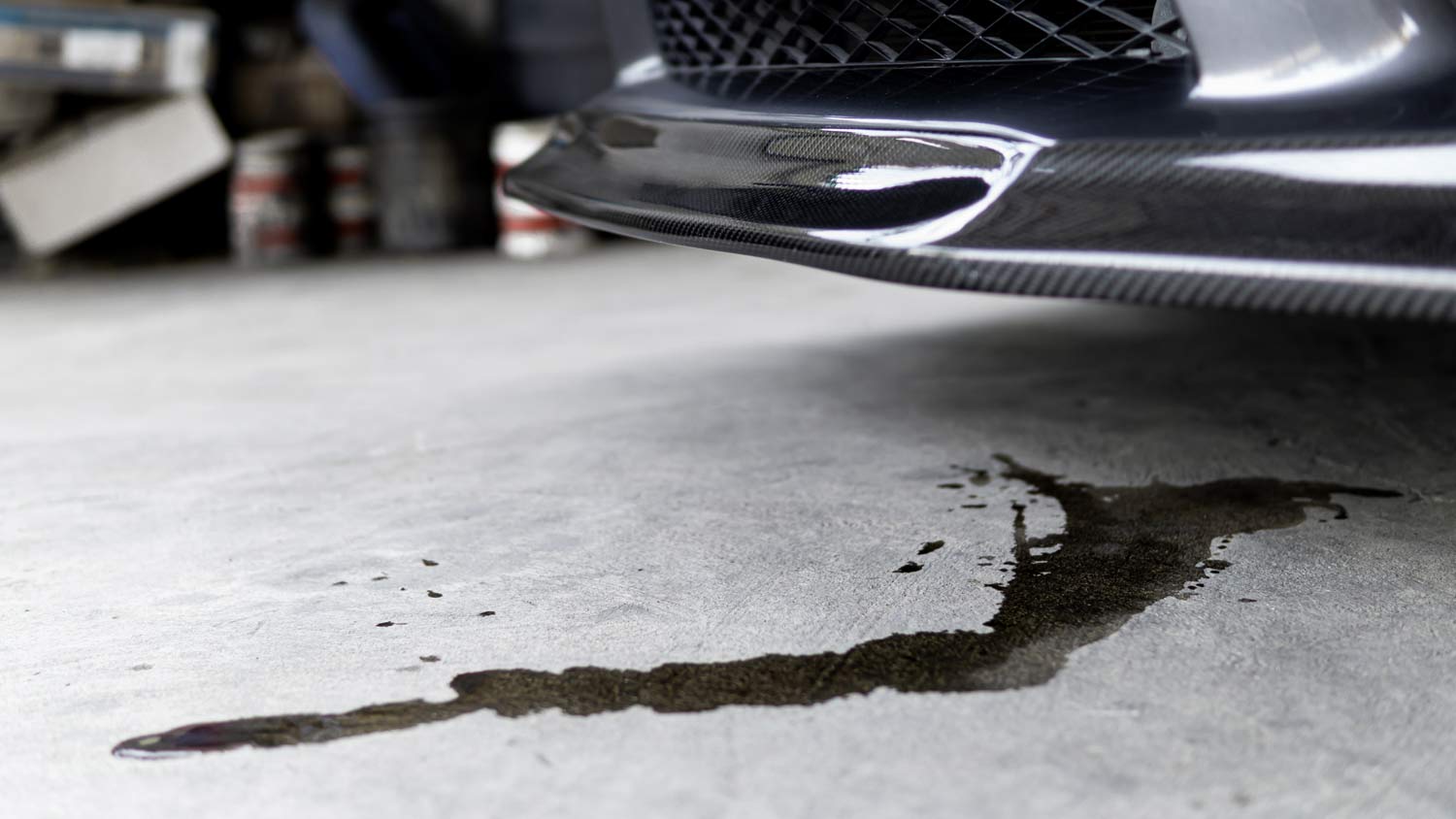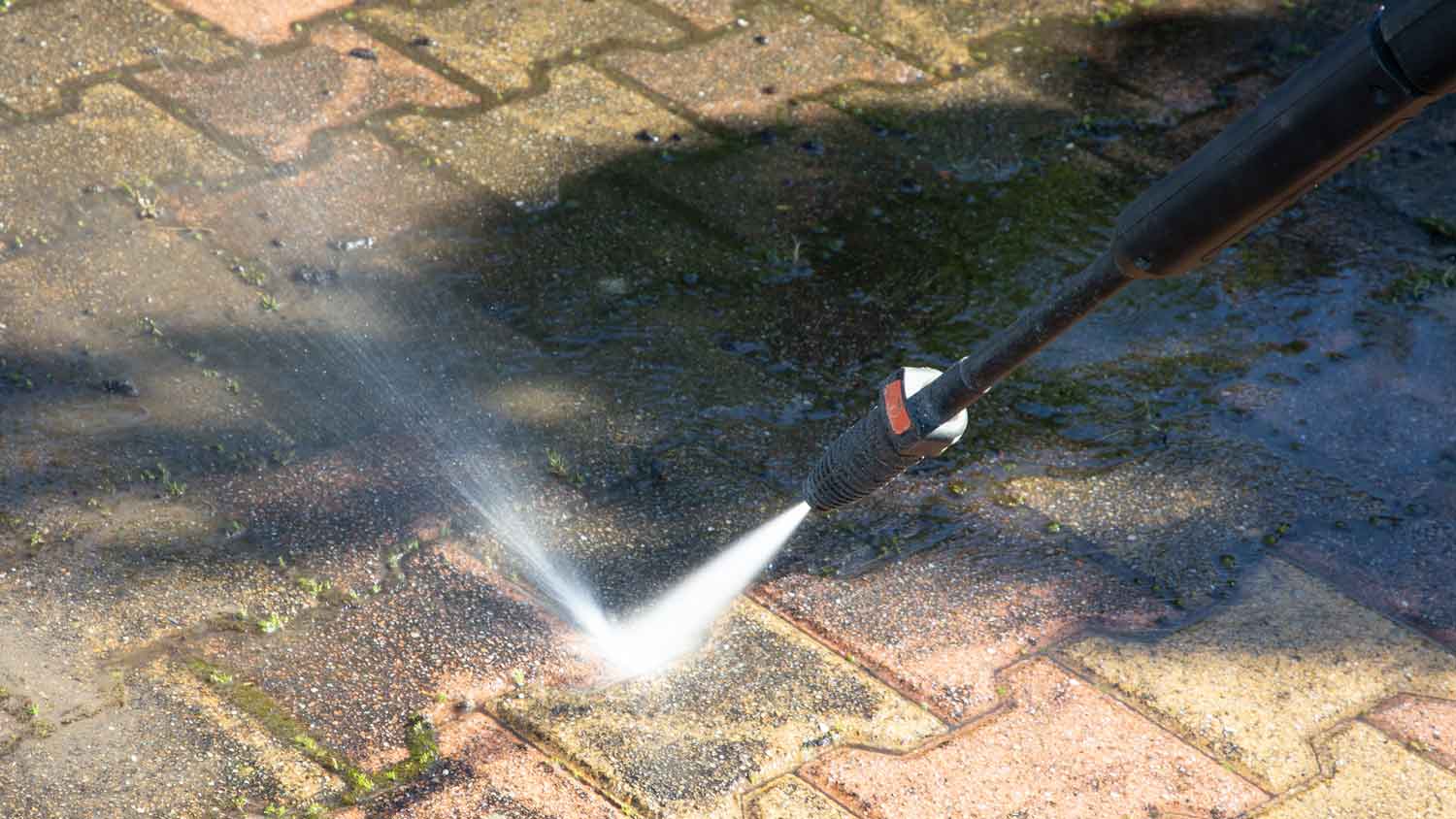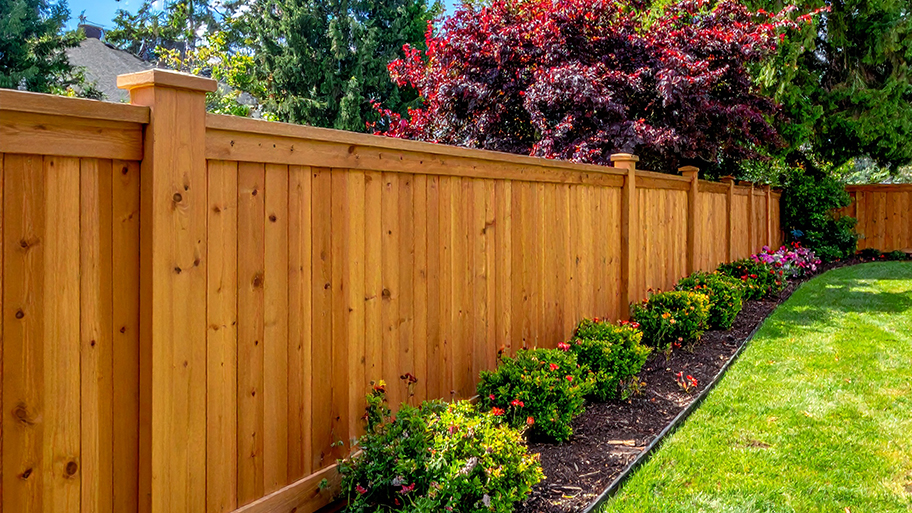
Pressure washers can help you keep your home looking great. Use this guide to learn how much it costs to rent a pressure washer based on factors like type and time.
Cruise to better curb appeal


The best way to clean your driveway is with a pressure washer and surface cleaner attachment.
A garden hose with a spray nozzle also works but usually isn’t as effective and takes much longer.
For stains, use a gentle cleaner that won't harm your surface material.
Sop up and clean spills as soon as possible to avoid hard-to-remove stains.
Clean your driveway once a year to prevent mold, mildew, and deep-set dirt stains.
Cleaning your driveway can turn it from brown and stained to looking brand new again. Whether you have oil spills, leaf debris, or dirt on the surface, you can refresh your driveway and boost your home's curb appeal. The best way to clean your concrete driveway is with a pressure washer and surface cleaner attachment, but you can also use a garden hose or hire a pro. Learn all about driveway cleaning and the best tools for the job.

Cleaning your driveway isn't just for looks. Here are the key benefits of annual driveway cleaning:
Boosts your home's curb appeal
Maintains the condition of your driveway
Protects and preserves your driveway
Eliminates mold, mildew, and algae that can eat away at your driveway's surface
Helps prevent expensive repairs
Prepares it for resealing
Adds value when selling your home
You should clean your driveway once a year to refresh the surface and keep it in good working condition. If you have a lot of debris, dirt, and oil spills, you may want to clean your driveway every six months. Soak up and clean spills within the first hour to avoid deep-setting stains.
Choose the best method for cleaning your driveway based on its size and condition. No matter which tool or method you use, always sweep or blow the surface clean of debris before cleaning the surface.
The best thing to clean your driveway with is a pressure washer with a surface cleaner attachment. Choose a pressure washer with around 3000 PSI and 3 GPM. The pressure and flow of water clears out dirt and grime without damaging the surface. Opt for a surface cleaner attachment with three wheels to allow for easy gliding and consistent coverage as you go. Having a pressure washer with a surface cleaner works better, takes less time, and is easier on your body than a standard pressure washer sprayer or garden hose with a spray nozzle.

When learning how to pressure wash a driveway, start from the highest elevation of your driveway (usually near the garage), and work your way lower to the end of the driveway. Glide the surface cleaner across the entire driveway in overlapping lines to avoid missing any spots. Pass over the driveway again with the surface cleaner or use the standard sprayer to spot-clean any tougher, dirtier areas. Apply a degreaser or gentle cleaning solution (such as a 1:1 ratio of white vinegar and water) to stains. Let it sit for 15 minutes then scrub the area with an outdoor broom. Rinse the area thoroughly with the pressure washer.
If you’re looking for how to clean a driveway without a pressure washer, use a garden hose and a spray nozzle to remove dirt and debris. Start from the highest slope of your driveway and work your way to the lowest point or bottom of the driveway. Cover the driveway completely by cleaning in even, overlapping lines. You may need to pass over the driveway two or more times to clean it thoroughly. Use a degreaser or gentle cleaning solution and a stiff broom to scrub any oil stains, then rinse the area with the garden hose.
Note that a garden hose and spray nozzle will not offer as deep or as thorough a clean as a pressure washer, and the job will take much longer.
If you don't have a pressure washer or don't want to spend your Saturday scrubbing the driveway, consider hiring a local power washing company. They have the tools and skills to remove everything from mildew and mold to deep-set oil stains. The cost to pressure wash a driveway ranges from $100 to $250 on average. While a contractor is on your property, they can also clean your patio, porch, or other outdoor areas. You may get a discount for bundling the projects.

Beyond regular driveway cleaning, you may wish to remove stains left by your vehicle, brake fluid, or a gasoline spill. Try to remove stains within the first hour to ensure they don’t set and leave a deeper stain. If left untreated, stains can weaken and damage your driveway finish. Here's how to clean driveway stains depending on the surface material.
Soak up the spill with an absorbing product, such as a clay-based kitty litter, baking soda, or sawdust. Let the product sit on the spill for an hour. Scoop the material into the trash and sweep the area. Clean the area with a pressure washer or garden hose and spray nozzle.
Soak up the spill with an absorbing product, such as baking soda, sawdust, or clay-based kitty litter. Let it sit for one hour, then scoop the material and sweep the area.
Next, create a cleaning solution to remove the stain further.
Here are the best driveway cleaning mixtures for concrete:
1/2 cup bleach per every 1/2 gallon of water.
1 cup white vinegar for every 1 cup of water.
1/2 cup TSP per 1/2 gallon of water.
Pour the solution over the spill and let it soak for 15 minutes. Scrub the area with a stiff bristle broom. Rinse the area with a pressure washer or garden hose with a spray nozzle.
Note: if you use vinegar repeatedly on the same area, it can weaken the concrete.
While tire marks fade into the background of an asphalt driveway, they can be an eyesore on concrete. Spray a degreaser or gentle cleaning mixture (such as 1/2 cup bleach mixed with 1/2 gallon of water) onto the tire marks. Let the solution sit for 15 minutes to dissolve the marks, then scrub the area with a stiff-bristle broom. Spray the area with a pressure washer or garden hose with a nozzle sprayer.
If you spot yellow-orange stains on the driveway, they're likely from lawn or garden fertilizer. These stains often fade over time, but you can remove them sooner by applying distilled white vinegar or a rust remover product to the area. If using vinegar, mix a 1:1 ratio of white vinegar and water. Let it soak the area for 15 minutes, then scrub it with a broom. Spray the area clean with a garden hose and sprayer or a pressure washer.

If you see spots of green, brown, or black on your driveway, it may be mold (while mildew is typically white). Your driveway may experience mold or mildew if you live in a humid area or if there’s not proper water drainage.
Spray an outdoor mold killer on the area and let it sit for 5 minutes. Or use a 1:1 ratio of white vinegar and water and let it sit for 15 minutes. Rinse the area clean with a garden hose and sprayer or a pressure washer.
If you’re refinishing a piece of furniture or painting your garage walls, paint spills can happen. You should try to clean up paint spills as soon as possible, ideally within 5 minutes.
For latex-based paint, remove the stain by spraying the area with water, applying scouring powder, scrubbing it with a stiff-bristle brush, and then rinsing.
For acrylic- and oil-based paints on a concrete driveway, apply paint stripper and scrub with a stiff bristle brush. Rinse with a garden hose or pressure washer.
For acrylic- and oil-based paints on an asphalt driveway, apply asphalt sealer over the area to blacken the surface again.
While rust usually isn't visible on an asphalt driveway, it can be unsightly on concrete. You can apply muriatic acid or a biodegradable efflorescence cleaner to the area. Always wear proper safety gear when working with these products, including rubber gloves and protective eyeglasses.
If using muriatic acid, mix 1/4 cup of muriatic acid into a bucket with 2 cups of cold water. Pour the mixture on the stain and let it sit for 5 minutes. Scrub the area with a stiff brush. Rinse the area thoroughly and repeat the process for heavier rust stains. If any acid comes in contact with your skin, rinse it off immediately to avoid skin reactions.
If you have dark leaf stains on your concrete driveway, apply an organic cleaner such as white vinegar and water (1:1 ratio) to the area and let it sit for 15 minutes. Scrub with a stiff-bristle brush, then rinse the area with a pressure washer or garden hose and spray nozzle.

After cleaning the driveway, consider resealing the surface to protect it and maintain its durability.
If you have an asphalt driveway, reseal your driveway every three to five years. The cost to reseal an asphalt driveway is $470 on average and helps maintain its condition and extend its life span.
If you have a concrete driveway, reseal it every five to seven years. The cost to reseal a concrete driveway ranges from $1,250 to $1,750 on average.
If you have significant cracks, you may want to consider the cost to repave the driveway. A local driveway paving pro can help repair and tune up your driveway for years to come.
The average cost to have a driveway professionally cleaned is between $160 and $250. If you already have a pressure washer, making this a DIY job can help you save. With the cost to rent a pressure washer close to $100 per day in most places, the savings of DIY driveway cleaning shrink if you don't have the materials on hand already. In addition to showing up with the right tools to get the job done, professional driveway cleaners also have extensive knowledge about the best and safest materials to use on various types of driveways. For driveways with excessive staining, being able to ask a pro how to remove oil stains from a driveway safely can be a huge benefit instead of using trial and error on your own.
Jenna Jonaitis contributed to this piece.
From average costs to expert advice, get all the answers you need to get your job done.

Pressure washers can help you keep your home looking great. Use this guide to learn how much it costs to rent a pressure washer based on factors like type and time.

Pressure washing your fence can restore its appearance and keep your home looking great. Learn how much it costs based on factors like square footage and material.

The cost to pressure wash a deck depends on its size, condition, material, and whether you DIY the job. Help set your budget with this cost guide.

To keep your pressure washing running whenever you need it, make sure to follow this pressure washer maintenance checklist.

Should you pressure wash siding? While perfect for hardscaping elements like brick patios, pressure washing can damage siding if not done properly. Before you have dirt blasted from your siding, learn if pressure washing is right for your home.

Impress the neighbors by sprucing up your siding and refreshing your roof. Use this guide to learn how to clean the exterior of a house–just like a pro.